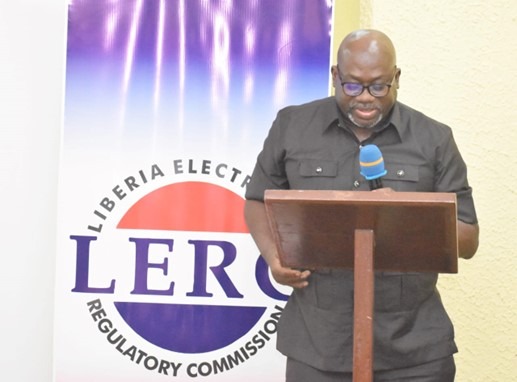The Liberia Electricity Regulatory Commission (LERC) has set a new deadline of January 31, 2025, for the Liberia Electricity Corporation (LEC) to submit a revised tariff application proposal. This decision stems from a request by LEC’s Interim Management Team (IMT) to withdraw the previous proposal submitted in October 2024. The IMT, recently appointed, cited a lack of familiarity with the existing application, necessitating a thorough review and revision before resubmission. This development underscores the importance of a smooth transition of power and knowledge transfer within the LEC to ensure continuity and effective management of critical processes like tariff adjustments. The LERC’s decision demonstrates a willingness to accommodate reasonable requests while upholding its regulatory responsibilities and ensuring the stability of the electricity sector.
The LERC’s decision to grant the extension avoids a potentially disruptive scenario where the IMT would be forced to operate under a tariff structure they did not fully comprehend. This proactive approach allows the IMT to thoroughly assess the existing tariff structure, evaluate its implications, and propose adjustments that reflect current operational realities and future projections. The extension also provides the LERC ample time to review the resubmitted proposal, conduct due diligence, and engage with stakeholders to ensure a fair and transparent tariff-setting process. This collaborative approach fosters trust and understanding between the regulator and the regulated entity, contributing to the overall stability and effectiveness of the electricity sector.
The current tariff structure, which remains in effect until March 31, 2025, caters to various customer categories, reflecting a tiered approach to pricing. Social customers benefit from the lowest rate of US$0.15 per kilowatt-hour without a fixed charge, acknowledging the need for affordable access to electricity for vulnerable populations. Residential customers, both prepaid and postpaid, pay a slightly higher rate of US$0.24 per kilowatt-hour, with varying monthly fixed charges. Non-residential and commercial customers are charged US$0.22 per kilowatt-hour, with higher fixed charges reflecting their greater consumption and business usage. Finally, medium voltage customers, typically larger industrial consumers, benefit from a lower per-kilowatt-hour rate of US$0.19 but incur a significantly higher fixed charge of US$50.00. This tiered structure aims to balance affordability with cost recovery for the LEC, ensuring the financial viability of electricity provision.
The three-month extension of the existing tariff period provides a period of stability for consumers, allowing them to plan their electricity expenditure without the uncertainty of impending price changes. This predictability is crucial for household budgeting and business planning, contributing to economic stability. Furthermore, the extension avoids potential public discontent that might arise from sudden tariff adjustments, especially during a period of transition within the LEC. By maintaining the current tariffs, the LERC ensures a smooth continuation of service while providing the IMT adequate time to prepare a well-informed and justifiable tariff proposal. This approach demonstrates the LERC’s commitment to balancing the interests of consumers with the financial sustainability of the electricity sector.
The LERC’s commitment to transparency and stakeholder engagement is a cornerstone of the tariff-setting process. Chairman Katta’s emphasis on public consultations and outreach initiatives underscores the importance of incorporating diverse perspectives into the decision-making process. By engaging with stakeholders, including consumers, businesses, and civil society organizations, the LERC can ensure that the final tariff decision is informed by the needs and concerns of all affected parties. This participatory approach fosters trust and accountability, contributing to public acceptance of the final tariff structure. The LERC recognizes that tariff adjustments can have significant economic and social impacts, and therefore, a transparent and inclusive process is essential for legitimizing the final decision.
The LERC’s decision to grant the extension and its emphasis on transparency reflect a commitment to responsible regulation of the Liberian electricity sector. By providing the IMT with sufficient time to prepare a comprehensive tariff application and by engaging with stakeholders throughout the process, the LERC is working to ensure a fair and sustainable electricity market. This approach not only benefits consumers but also contributes to the long-term viability of the LEC and the overall development of Liberia’s energy infrastructure. The LERC’s proactive and collaborative approach sets a positive precedent for future tariff adjustments and strengthens the regulatory framework governing the Liberian electricity sector.


